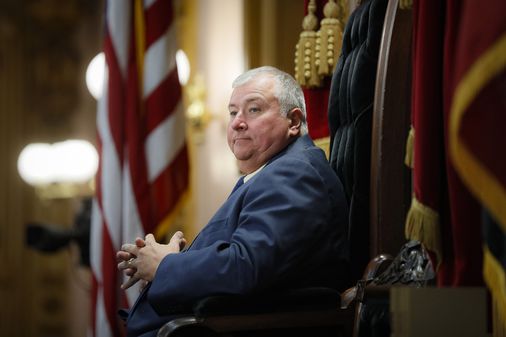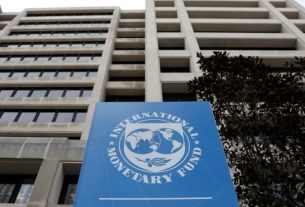Legal experts say if the jury convicts Householder, the case could send a message through the campaign finance world about the consequences of misusing dark-money groups, a term for a category of tax-exempt nonprofits that can raise unlimited sums of money to influence politics without ever disclosing their donors. But these experts warn that an acquittal could open the floodgates even more for the political use of such secret donation groups. While it is legal for such groups to raise and spend money around the advocacy of particular issues, though not explicitly for candidates, public interest advocates have long decried the explosion of such groups as a way around campaign finance law that has been allowed to run amok.
In recent years, the Supreme Court has overturned a string of public corruption convictions, citing concerns about prosecutors criminalizing routine politics. In a pair of cases currently before the high court, a majority of justices seem poised to once again narrow the types of corruption cases that prosecutors can bring, raising the stakes for prosecutors in the Householder case to set a marker.
“Householder’s claim is, ‘This just the way we do politics in Columbus, what’s the big deal?’ ” said Jonathan Entin, a professor at Case Western Reserve University’s law school. “But some of the things that have happened here with [this case] are extraordinary. Now, whether they’re extraordinary enough to meet the requirements the Supreme Court has laid down, that I don’t have the answer to.”
Householder was charged in 2020 with a racketeering conspiracy along with four others, two of whom have pleaded guilty and testified against him, one who died by suicide, and one who is also on trial with him.
Over the past six weeks, prosecutors have laid out to a jury in detail the alleged scheme in which local public utility company FirstEnergy poured $60 million into Generation Now, the shadowy nonprofit organization that was allegedly secretly overseen by Householder. Ostensibly a group that advocated for energy independence, prosecutors assert it was a front to create a slush fund.
That money was allegedly used to enrich Householder personally and politically, as well as to achieve the goal of the alleged bribery plot: to first pass HB 6, a more than $1 billion bill that bailed out FirstEnergy and its two failing nuclear power plants, and then defend the measure from a repeal effort. Prosecutors assert the scheme to keep the repeal off the ballot included harassing or paying off signature collectors and an attempt to bribe one of the operatives of the repeal effort.
Prosecutors say Householder received hundreds of thousands of dollars to pay off personal debt and legal fees, as well as a political slush fund to support political allies who then made him speaker and positioned him to muscle HB 6 into law. After his indictment, Householder was removed as speaker and expelled from the Legislature by his colleagues.
Householder has denied any wrongdoing, arguing the alleged kickbacks were merely loans he intends to repay someday and that the bill’s passage and defense, as well as the dark-money group, represented regular political activity.
Though the case has gotten little attention outside of Ohio, the implications of prosecuting an alleged bribery scheme run through a dark-money group could reach across politics.
Generation Now, an entity created as a tax-exempt “social welfare organization,” has since pleaded guilty along with its director to being a front for the racketeering scheme. While such groups are extensive in politics, prosecutors assert this one took advantage of the ability to keep its donors secret and engage in issue advocacy to serve as a perfect money-laundering vehicle.
David DeVillers, the former US attorney for the Southern District of Ohio who oversaw the indictment and has since left office, said he hopes Householder is convicted in part to send a message to lobbyists and corporations that funneling money this way to influence legislation is out of bounds.
“Everything in this case begins and ends with the (group) … you couldn’t hand somebody a bag with $61 million,” DeVillers said. “The politicians, maybe I’m just jaded, I’ve given up on them, and they’re not the brightest bulbs in the box, they’re just not, but the lobbyists are and these people leading the corporations are … they know what they’re doing and they’ll push the envelope until someone says, ‘Hey, this is where the envelope is.’ ”
DeVillers said prosecutors worked to ensure the facts of their case would withstand appellate court scrutiny, given the Supreme Court’s decisions on public corruption cases in recent years.
In 2016, the court unanimously overturned the bribery conviction of former governor Bob McDonnell of Virginia, who accepted lavish gifts, but the court held he did not exchange them for an “official act” by merely setting up meetings or making connections with officials.
Four years later, the court unanimously overturned the conviction of two former New Jersey officials for closing lanes to create traffic in the infamous “Bridgegate” scandal, saying scoring political retribution did not count as fraud without the goal of obtaining money or property.
And the justices seemed poised once more to curtail prosecutors during oral arguments in a pair of cases last November, stemming from an alleged bid-rigging and a bribery scandal in Albany, N.Y. In one case, they expressed skepticism that a former official working as a private citizen could be charged under bribery laws normally governing conduct for government officials, and in the other, expressed doubt that by steering a contract to a particular company, the defendants actually defrauded the government.
David Kwok, a professor at the University of Houston Law Center, said the Supreme Court has generally upheld cases of straightforward quid pro quo bribery or theft of government money or property. But they’ve shown a hesitance to criminalize other aspects of politicking that could be blurry, he said.
“Even in academia, we don’t have good agreement as to what constitutes public corruption,” Kwok said. “Internationally, a lot of folks look at our whole campaign finance system and say isn’t that bribery? So this is tough.”
The Supreme Court, in the case of McDonnell, the former Virginia governor, ruled essentially that “paying for access in and of itself doesn’t constitute federal bribery,” Kwok said. “These are our practices, even if you find our practices distasteful.”
Legal scholars say the court’s limits on federal prosecutors are indicative of a bigger truth: Voters are the ultimate arbiter of ethics. And officials could change the laws to make clearer what behavior is criminal, if they wanted to.
Entin, the Case Western Reserve professor, said the case does raise important questions about campaign finance broadly, such as whether politicians are blank slates to be influenced by their donors or whether donations merely reward a pre-existing ideology.
“These are legitimately hard questions,” Entin said. “The things that happened [in this case], we should be scandalized by these things, whether or not they were legal.”
Tal Kopan can be reached at tal.kopan@globe.com. Follow her on Twitter @talkopan.


